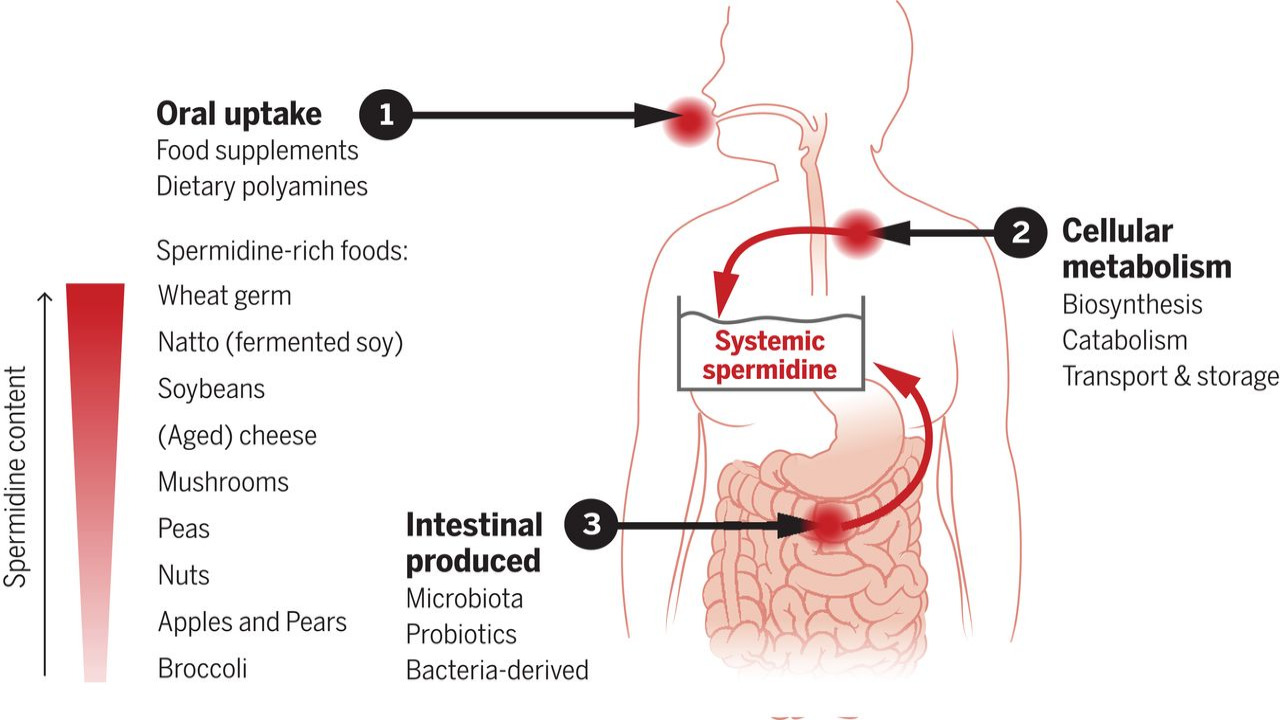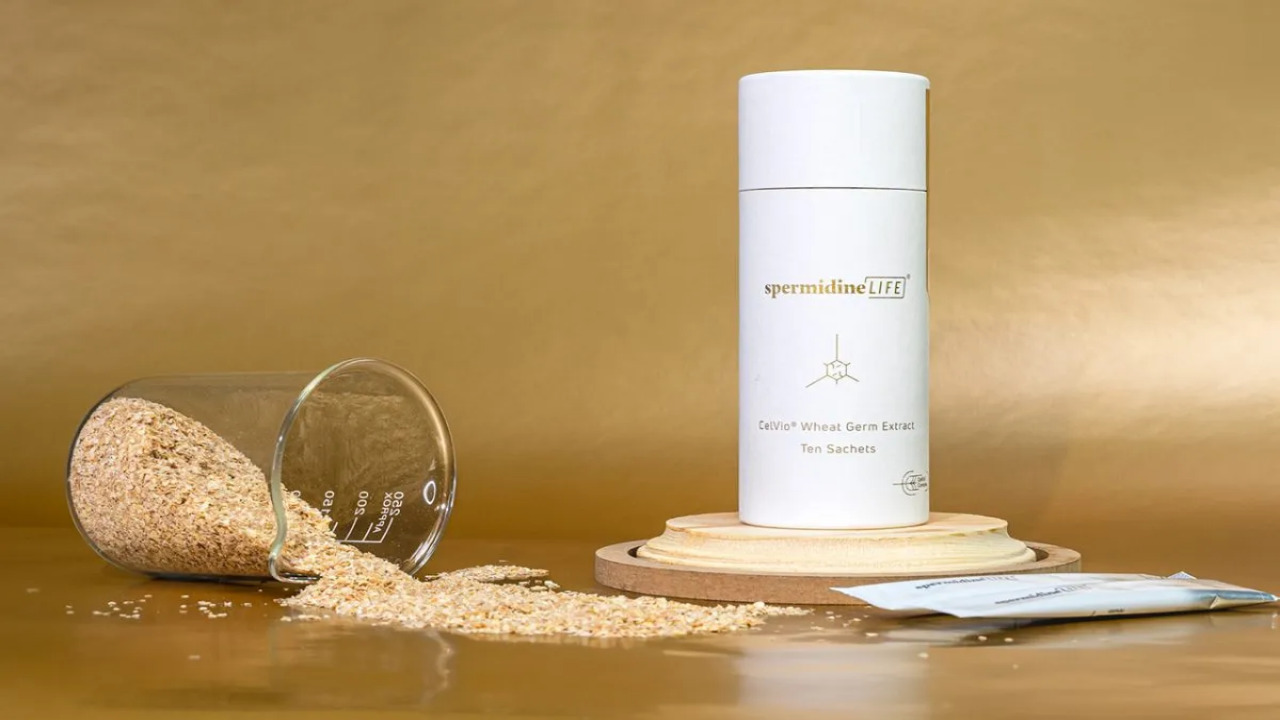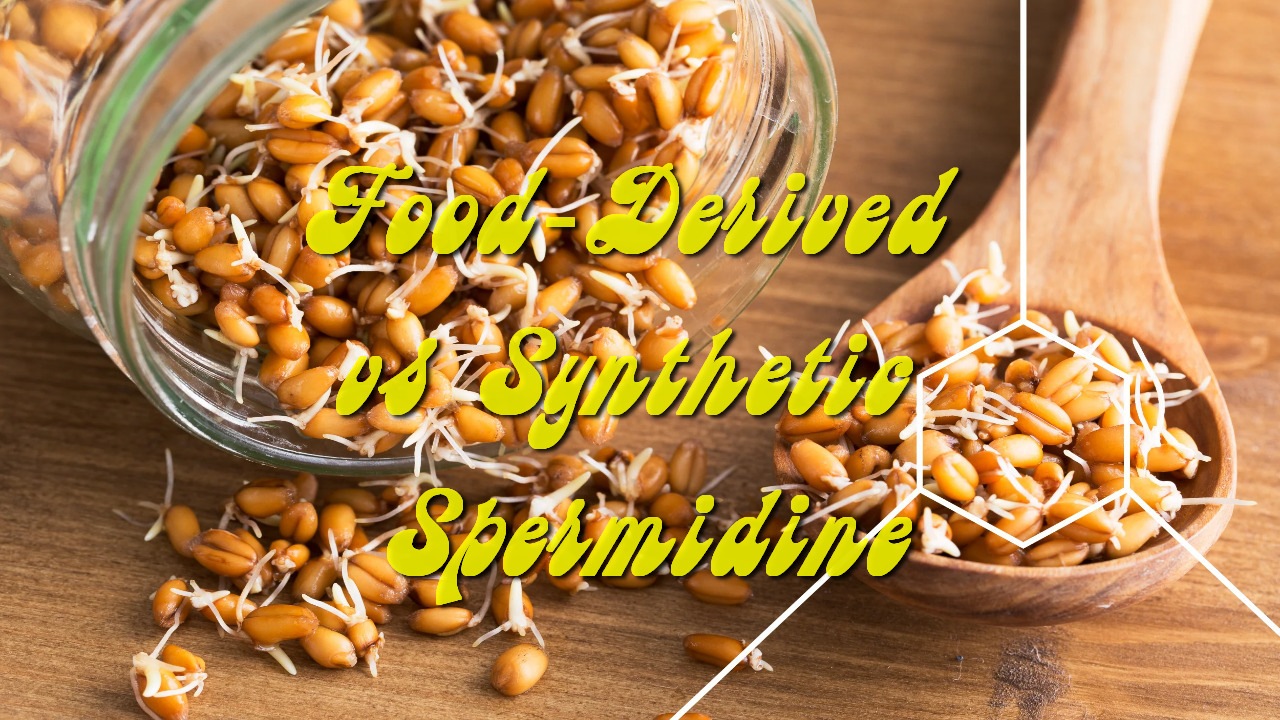Food-Derived vs Synthetic Spermidine
Spermidine is a naturally occurring polyamine that is found in a variety of foods, including soybeans, wheat germ, and aged cheese. It is known to have a variety of health benefits, including anti-inflammatory properties, cardiovascular protection, and neuroprotection. In recent years, spermidine supplements have become increasingly popular as a way to boost health and longevity. However, there is some debate over whether food-derived or synthetic spermidine is the best option. In this article, we will explore the differences between food-derived and synthetic spermidine and the potential benefits and drawbacks of each.
The Benefits of Synthetic Spermidine

Synthetic spermidine is produced in a laboratory and is typically sold as a dietary supplement. It is a more concentrated source of spermidine and may be more convenient for those who have difficulty getting enough spermidine through diet alone. An example of synthetic spermidine is https://longevitybox.co.uk/products/pure-spermidine-supplement. Some of the benefits of synthetic spermidine include:
- Consistent Levels: Synthetic spermidine supplements provide a consistent level of the compound, ensuring that individuals are getting enough to meet daily requirements.
- Convenience: Supplements are a convenient way to get a higher dose of spermidine, especially for individuals who have difficulty consuming enough through diet alone.
- Fewer Side Effects: Synthetic spermidine supplements are typically well-tolerated and have fewer side effects compared to other dietary supplements.
The Drawbacks of Synthetic Spermidine

However, there are also some potential drawbacks to synthetic spermidine supplements. These include:
- Purity: The purity of synthetic spermidine supplements can vary, and some may be contaminated with other substances.
- Cost: Synthetic spermidine supplements can be more expensive than consuming spermidine through food sources.
- Possible Negative Interactions: There may be negative interactions between synthetic spermidine supplements and other medications or supplements.
The Benefits of Food-Derived Spermidine

Food-derived spermidine is naturally occurring and is found in a variety of plant-based foods. It is generally considered safe and is a more natural option compared to synthetic spermidine. Some of the benefits of food-derived spermidine include:
- Nutrient-Rich: Foods that are high in spermidine are also typically nutrient-rich and provide a variety of other health benefits.
- Potentially Synergistic Effects: When spermidine is consumed as part of whole food, it may have synergistic effects with other compounds in the food, leading to increased health benefits.
- Lower Cost: Food-derived spermidine is typically less expensive than synthetic supplements.
The Drawbacks of Food-Derived Spermidine
However, there are also some potential drawbacks to consuming spermidine through food sources. These include:
- Inconsistent Levels: The levels of spermidine in foods can vary widely depending on the source and preparation method.
- Difficulty Meeting Daily Requirements: It may be difficult to consume enough spermidine through diet alone to meet daily requirements.
- Unpleasant Taste: Some of the foods that are high in spermidine, such as aged cheese, may not be palatable to everyone.
Conclusion
In conclusion, both food-derived and synthetic spermidine have potential benefits and drawbacks. Food-derived spermidine is a more natural option and may provide additional nutrients and potential synergistic effects. However, it can be difficult to consume enough spermidine through diet alone, and the levels of spermidine in foods can vary widely. Synthetic spermidine supplements provide a consistent level of the compound and are more convenient for some individuals. However, they can be more expensive and may have potential negative interactions with other medications or supplements. Ultimately, the best option will depend on an individual’s needs and preferences. It is important to speak with a healthcare provider before starting any new supplement regimen, including spermidine supplements.

